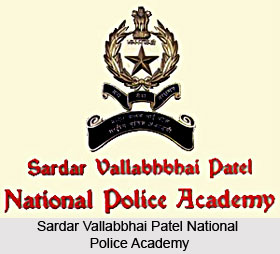 Functions of Ministry of Home Affairs essentially relate to the maintenance of peace and security within the nation. Among the main functions of the Home Ministry are - Law and Order; Police, Public Security and Prisons; Administration of Union Territories; Centre-State Relations; Official Languages and Civil Defence and Miscellaneous.
Functions of Ministry of Home Affairs essentially relate to the maintenance of peace and security within the nation. Among the main functions of the Home Ministry are - Law and Order; Police, Public Security and Prisons; Administration of Union Territories; Centre-State Relations; Official Languages and Civil Defence and Miscellaneous.
Law and Order
The Ministry is responsible primarily for the maintenance of law and order in the state and union territories.
Police, Public Security and Prisons
While public services have been transferred to the Ministry of Personnel, the police and public security have remained the responsibility of the Home Ministry. The police force forms a very important part of governance and a great deal is dependant on it. Police services are very much in the forefront and when every other service is on strike, it is the police which come on the scene. The result has been a tremendous growth in the number and variety of the police organizations, big increase in the police personnel and increasing emphasis on police training. The ministry is the cadre controlling authority for the Indian Police Service (IPS). It looks after service matters like appointment to the IPS, deputation to the Centre, training, fixation of seniority, pay, etc. The Ministry has a well-developed training programme for this service personnel. The foremost is the Sardar Vallabhbhai Patel National Police Academy (SVPNPA) located at Hyderabad. The Academy is the national level and in service professional training to IPS officers.
Administration of Union Territories
The union government is the real repository of authority in this respect and is responsible for the administration of the Indian Union Territories. The Indian President administers these territories through an administrator (as in Andaman & Nicobar Islands) or Chief Commissioner (as in Chandigarh) or Lieutenant Governor (as in Delhi and Pondicherry). The power of the President is exercised through the Home Ministry.
Centre-State Relations
The subject of Centre-State Relations falls under this Ministry.
Civil Defence
Civil Defence aims at saving life, minimising damage to property and maintaining of industrial production in the event of hostile attack. It is primarily organised on a voluntary basis except for a small nucleus establishment. It is confirmed to selected places and vital plants and installations depending upon their strategic and tactical importance. The Home Guards is a voluntary force organization raised by the State Governments and Union Territories under a broad policy and pattern laid down by the Home Ministry. It is a country-wide organization and its members are drawn from all walks of life. Besides attending to their normal avocations, the Home Guards place their services voluntarily at the disposal of the authorities to assist the civil administration and the community at large. In most of the states these guards are used as part of police forces and are assigned all sorts of duties.
The Ministry conducts civil defence training in the country at three levels, local/town level, state level and national level. The other example of Civil Defence is Fire Service. The Ministry provides guidance, training facilities and general coordination for these services which are administered by the State Governments and the Union Territories.
Appointment to High Positions
The Ministry is concerned with appointments to most of the high positions like Governors, Lieutenant Governors, Chief Commissioners, members of the Inter-State Commission, etc. It is also concerned with the conditions of service of these officers. In addition, the emoluments, allowances, privileges and rights in respect of leave of absence of the President and Governors, salaries and allowances of Ministers, Ministers of States, Deputy Ministers and Parliamentary Secretaries of the Union Government fall within its purview. It also issues notifications of appointments and resignations of the Presidents, Vice-President, Prime Minister and other Ministers. It is the Home Secretary who reads out the notification of the appointment of the President at the oath-taking ceremony of the new President.
Department of Official Languages
The Ministry has a separate Department of Official Language which has the nodal responsibility for all matters relating to the progressive use of Hindi as the official language of the union including Hindi teaching schemes for Central Government employees and publication of magazines, journals and other literature.
Miscellaneous functions
Under this heading fall numerous functions like issue of notifications of elections of the President and the Vice-President; grant of pardons, reprieves, suspension, remission or communication of a sentence of death; census; elections; citizenship; immigration; lotteries; rehabilitation; special development activities in states and union territories; matters relating to code of conduct for ministers and legislators; grant of visas to foreigners; official dress etc.






